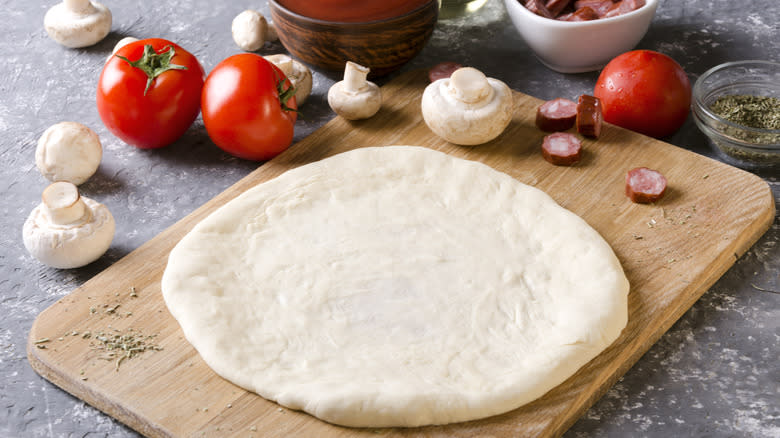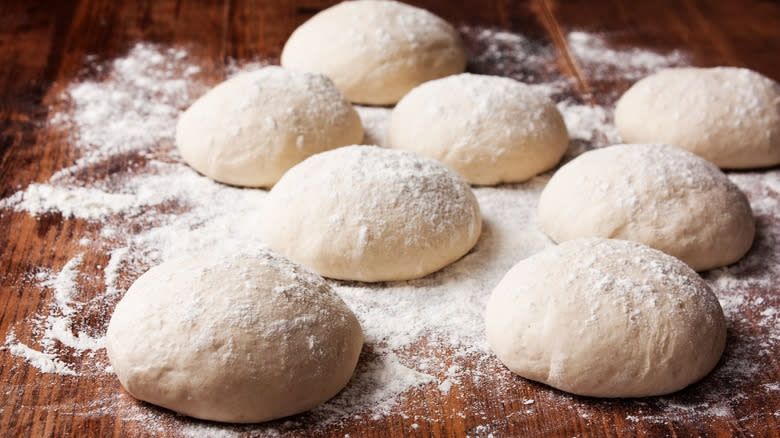Here's Exactly How Long Store-Bought Pizza Dough Lasts

Whether it's serving up a grill platter, or digging into a casserole, many dishes are best shared amongst friends. And there are few better candidates for such conviviality than a pizza night. Sure, you can order pies in, but there's something extra special about making the dish yourself. It's even possible to hand-make the dough -- perhaps as a Neapolitan recipe or in beer-based pizza style.
However, it's understandable that not everyone wants to go through the efforts of flour-dusting and patient resting. So it's perfectly feasible to turn to store-bought dough to ease the creation process. With dough's finicky nature, the main consideration only becomes storage. How long is it safe to keep store-bought dough before baking?
Well, at room temperature, it won't be long -- just around four hours maximum, but it's best to prepare it even quicker to prevent foodborne illness. Refrigerated, the durability can be lengthened to three days, or perhaps even a day or two longer if packaged airtight. For prolonged storage, the freezer is the best bet, enabling up to three months of stability.
Read more: 30 Popular Frozen Pizzas, Ranked Worst To Best
Look Out For Dough Spoilage Signs After Three Days In The Fridge

Understandably, nothing beats freshly made dough. Store-bought exemplars still achieve delicious flavor, but it's the rise and chew of the texture that's tricky to get right. Throwing your purchased dough in the fridge for a day or two isn't going to ruin the pizza night, but you'll want to take some precautions to ensure optimal quality.
First, make sure to avoid any temperature swings. Grab the dough as the last item on the shopping list, and keep an eye on transport time prior to refrigeration. The longer the pizza base spends in higher temperatures, the more likely it is to ferment to a rancid state.
The amount of yeast between brands also differs, so keep a close eye on symptoms of over-fermentation, especially once approaching three days of refrigeration. Once the dough starts to smell sour, alcoholic, or strongly of yeast, it means it's time to toss it. Additional cues include off-colors -- especially in darker tones -- and spots of mold. Plus, if the texture is too dry, or overly sticky to the touch, reconsider before serving friends.
Remember you can stash leftover pizza in the freezer for months, so it's probably easier to make all the pies in one go. And if you're feeling tired of pizza, repurpose it into some delicious unconventional uses for pre-made dough rather than letting it sit around in the fridge.
Read the original article on Tasting Table.


